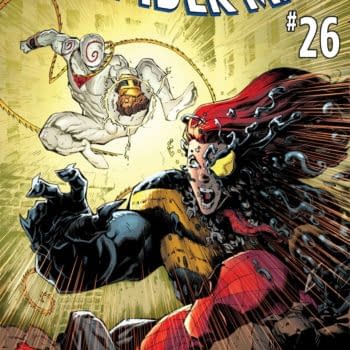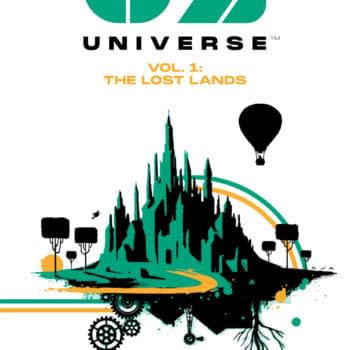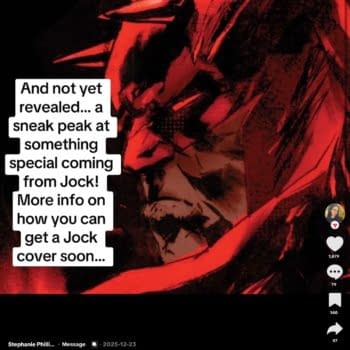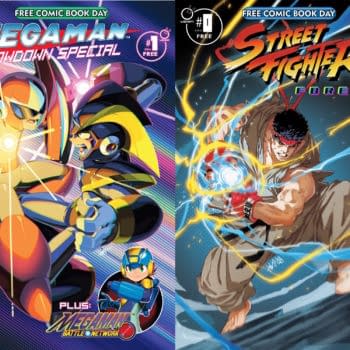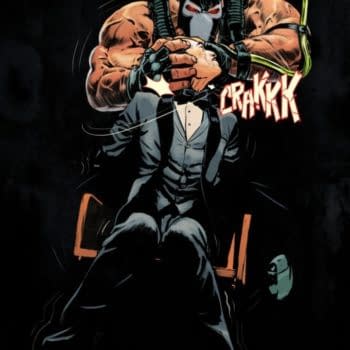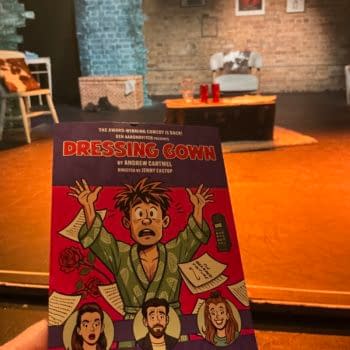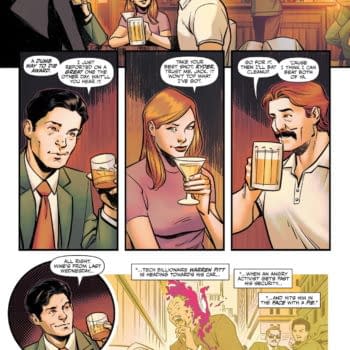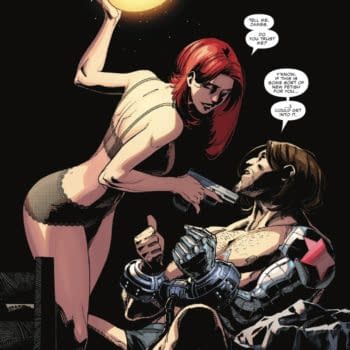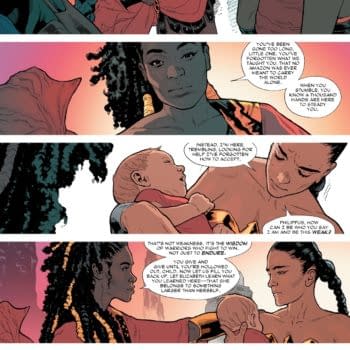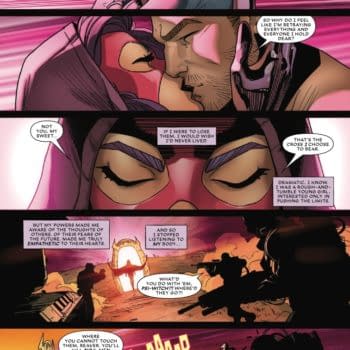Posted in: Comics | Tagged: comic con, Comics, gender, marvel, race, racebending, san diego, sdcc
Racebending At San Diego Comic Con – "Do You Really Want To Let Everyone Know You're Black?"
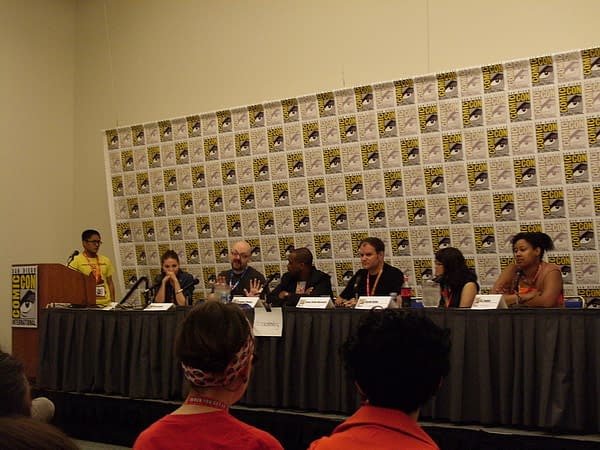
Racebending.com's 2nd annual Comic-Con panel (Creating Spaces For Diverse Characters and Representations) was, much like the site itself, diverse, fun, informative and tinged with a touch of modern sadness. The panel was made up of creators and writers from the worlds of video games (David Gaiden, Dragon Age), comics (Marjorie Liu, Astonishing X-Men, Brandon Thomas, Miranda Mercury), television (Javier Grillo-Marxauch, Lost/Seaquest) and novels (Sarah Kuhn, One Con Glory, N.K. Jemisen, The Hundred Thousand Kingdoms).
For those unaware of Racebending.com's existence, the site was born out of anger at the casting of a white actor to play Aang in the (disastrous) film adaptation of Avatar: The Last Airbender. Since it's inception the site has rallied and railed against whitewashing (the practice of casting a white actor in the role of a minority) in countless Hollywood films from The Hunger Games to the yet to be made (disastrous) live action Akira.
Marjorie Liu talked about being told that she should change her name, and related a story of a friend who was told that her asian name was "ethnically tainted" leading to the friend changing her name for her professional work. David Gaiden speaking on video games dismissed the popular notions of gamers being all young, conservative men. He also while talking about Dragon Age brought up a truly disturbing fact, that the most popular mod allows the player to change the race of the game's one black female to a white, blonde.
Liu also talked about her All Women Marvel book that got nixed, as reported here. She also told us;
"[They would be] brought together for a very specific purpose…because they have such different personalities they were going to learn that they worked very well together as a team despite the fact that they didn't really like each other that much, and that they had something to offer as…something to offer that others couldn't, in a sense that these are all women who are ruthless, they are incredibly strong, incredibly skilled at what they do, assassination to espionage to flat out sabotage and together they were very, very powerful, more powerful together than they would be apart. So…they would come together for special missions and then do their own thing, but they would always be, something like a secret society, that just the four of them knew about, that no one else was aware of."
Brandon Thomas shared a story about his mother, when he was writing for a website that asked for him to include a picture with his posts, his mother asked, "Do you really want to let everyone know you're black?" "And she was right" he followed up with. Asking to be known as a writer first, not a black writer. He also spoke about the difficulty of getting his independent series, Miranda Mercury off the ground, given that protagonist being a black female.
Javier (who is a GREAT panel guest, if you ever get the chance be sure to see him) spoke about his ethnicity (Puerto Rican) not being believed because of his light skin tone. He also brought up an interesting decision he had made while writing for television, purposely shying away from writing ethnic characters because of the industry's tendency to play them only as a stereotype. "I didn't want to write any characters who called everyone papi." he recalled. He also told us about two upcoming comic projects with APE Entertainment, Ramiel: Wrath of God and Unfathomable, the ladder he described as transformers with fish.
Author Sarah Kuhn talked about pitching an asian superhero team, which she set in a white, suburban neighborhood hoping to allay industry nerves, yet was still met with questions such as, "Does the team have to be Asian?". She also revealed (which many with children probably already know) that younger viewers have a much easier time accepting racially diverse characters than older and in fact you'll find the most diverse characters on television on children's shows.
N.K. Jemisen, who comes from the world of fantasy fiction, explained that in fantasy race is more of an issue than gender. She spoke about how she chooses to shy away from fantasy writing that only depicts a white washed version of medieval Europe, reminding the audience of the moors, chinese and other ethnicities that were found in Europe during the medieval period. Not a black fantasy writer, but a fantasy writer who's black was the distinction she related several times. A point agreed with and reiterated by Thomas.
Despite Gaiden's admitting the sad truth about the racist game mod, Jemisen said that she had found a mod that allowed users to make the background characters more ethnically diverse, which restored a little bit of faith to those in the room reeling from the harsh truth of many of the panelists stories.
Javier described the industry as a "colossal carnival ship, where you can eat all you want, but only what they give you." He encouraged those in attendance to give up their codependent attachment to the mainstream. "Wreck the ship" Jemisen added. Don't simply stop buying the titles, but let the companies know that you won't buy titles that don't represent you or actively try to enforce an regressive or outdated set of societal norms was the final point arrived at by several of the panelists.
All and all the panel was lively, intelligent, well moderated and well attended. Even in the light of some of the more depressing stories shared among panel members, the number of attendees signaled that while things may be bad, they are getting better. People at Comic Con are interested in things besides exclusive expensive plastic and getting a peek at a confused film star.






